A Hard Insurance Market Commands Higher Rates But Fewer Customers
5 min read
Topic: Insurance Sales Insurance Marketing Insurance Agency Management Insurance Agency Growth Strategies Grow an Agency
A hard insurance market means there’s a high demand for insurance coverage and a reduced supply. Insurance companies use very strict underwriting standards and issue a limited number of policies. Premiums are high and insurance carriers don’t want to negotiate terms.
Insurance hard markets are generally welcomed by independent insurance agents as a prosperous part of the market cycle, because rising insurance rates typically mean rising commission and income whether you’re selling life, property, casualty insurance or something else.
Agency owners often welcome the increased revenue while employees have more work to do. But, customers are frequently unhappy, since it becomes hard to find coverage, and low premiums are very difficult to find.
These are the things we generally think about, but there are some others that are very important.
Hard Market Conditions Can Stop or Reverse Growth
In a hard market, not all agents prosper. In fact, looking at our agencies and considering agents who had been in the insurance business five years or longer I saw a number that ceased growing or actually went backward. In the face of double-digit rate increase, how is this possible?
Four Possibilities
1. Lack of marketing
The first possibility is that these agencies were not aggressively looking for new customers and were relying solely on increased insurance to grow their income. You simply cannot do that in a hard market! Customers will shop around when their premiums go up, whether it’s for commercial insurance, life insurance, or homeowners insurance! It’s obvious, but unfortunately, some agencies fail to increase their marketing efforts in hard markets, and without a marketing investment there are no investment returns. BIG mistake.
2. Poor retention efforts
The second possibility is that a hard market really shows the weakness of an agency with poor retention efforts. You have to stay ahead of the competition - the market in the insurance industry is full of hungry agents trying to make a name for themselves. A well-run agency should have a retention rate of 90% or better, and hold onto their market share because they are selling on something besides price. You must work hard to take good care of customers.
Agencies with lower retention rates in normal times often see their retention plummet during a hard market. This becomes a HUGE double whammy. Think about the math. Rates up 10%. Retention goes from 80% to 70%. What happens to growth?

3. Decrease in average commissions
The third possibility is that average commissions go down! This is because during hard markets companies shrink their underwriting appetites and more business insurance moves to the Excess and Surplus Lines market at lower commission rates.
Depending on an agency’s insurance product mix this can be stunningly painful. Consider an agency which writes a lot of restaurants, for example. Say the book is $500,000 total and 50% moves to E&S markets.
And assume retention drops from 90% to 80%. The agency is not marketing for new customers and just trying to keep existing ones. Commission was $75,000 at 15%
Now commission averages 12.5%. Once retention is factored in commission on the book drops from $75,000 to 50%. A drop of 33.33%! And NO CHANCE of profit sharing on half the book.
4. Reduced agency force
The fourth is that carriers get more aggressive about trimming their agency force to save marketing dollars as part of their risk management strategy, and agencies with smaller books or marginal loss ratios lose carriers. This inevitably results in a loss of customers and income.
When the hard market is driven by weather-related losses, commission cuts become inevitable as companies struggle to maintain margin.
So, as you can see, smart agency owners have a lot to think about – and proactively manage – to take advantage of a hard market. What are you doing about these issues? Think about it.
Tips to Deal with Hard Market Issues
I hope I provided some impetus for thought and action! Now, I’d like to foster that with some suggestions on dealing with each of the above issues.
-
 For issue number one, there is no better time to develop and implement aggressive marketing efforts! Perhaps you’ve been lax. Forget it and get busy – there’s no better time to be looking for customers than when they are looking for alternatives to high prices! The return on this investment? Income in the shape of retention or new clients.
For issue number one, there is no better time to develop and implement aggressive marketing efforts! Perhaps you’ve been lax. Forget it and get busy – there’s no better time to be looking for customers than when they are looking for alternatives to high prices! The return on this investment? Income in the shape of retention or new clients. -
The second issue – poor retention – is a little more difficult. But the best time to be proactively talking to your customers is during a hard market. Perhaps you’ve kept them over the last few years with little effort. But now that they are getting rate increases, they’re shopping!
-
Get in front of that. Educate them before renewal on what to expect.
-
Talk to them. Tell them you’ll shop for them.
-
Suggest ways to reduce their costs with coverage, if necessary.
-
Provide solutions in advance of renewal.
You may lose some, but you’ll keep a far larger number than if you do nothing!
-
The commission reduction on non-standard business is difficult to rectify in a hard market. The business is simply going to move back where it belongs.
-
The best strategy here is to focus on retention and service.
-
The next strategy – and this is critically important – is to work on account rounding! If you don’t write every line of business for this type of customer, this is where your marketing effort needs to go first! If they only have homeowners insurance, pitch them on auto insurance, life insurance, and umbrella policies.
-
From there, work on developing a marketing effort to a different niche that is always standard lines. If you work at this, average commission dollars will go up even if commission rates go down.
-
-
If you have a small book, or marginal loss ratios, get in front of the problem by talking to the carrier and developing a plan to fix the problem. That may mean account rounding, account moving or it could mean consolidating the book with another carrier before the agency cancellation happens. Again, your best bet is to be proactive!
-
The final issue is commission cuts. You should complain! Then try to move as much business as possible to carriers who haven’t cut commissions. Try to negotiate a new business incentive to offset (OAA and SIAA does this very aggressively and successfully for members) commission cuts. Make sure you are selling something besides price to your customers and consider carefully whether they need to be in a different tier, company, or rating group.
Hard markets don’t automatically mean more money for agencies. Often, they mean less. But the owners who avoid or fix these problems we’ve been discussing have the best chance of coming through the hard market successfully. Good luck!
Tony Caldwell
Tony Caldwell is a modern “renaissance man,” who is not only immensely successful in the field of insurance, but is also a writer, children’s advocate, mentor and even a licensed pilot.
Always keen on helping others make their dreams come true, Tony and his team have helped independent agents grow into more than 250 independent agencies. This has made OAA the number one ranked Strategic Master Agency of SIAA for the last 5 years, and one of Oklahoma's 25 Best Companies to Work for.
Tony loves to share his knowledge, insight and wisdom through his bestselling books as well as in free mediums including podcasts and blogs.
Tony and his family are members of Crossings Community Church, and he is very active in community initiatives: he’s chairman of It’s My Community Initiative, Inc., a nonprofit working with disadvantaged people in Oklahoma City; and chairman of the Oklahoma Board of Juvenile Affairs., and he has served through many other organizations including the Salvation Army, Last Frontier Council of the Boy Scouts of America, and the Rotary Club.
In his spare time, Tony enjoys time with his family. He’s also an active outdoorsman and instrument-rated commercial pilot.
Recent Posts
Insurance Sales
Insurance Agency Staffing: The Three Essential ...
Contents The Sales Function Taking Care of Business - The Service Function Administration and...
Insurance Sales
Hiring Insurance Agents and agency Employees
Contents The First Questions Hire in order to free yourself from non-sales functions Customer...

